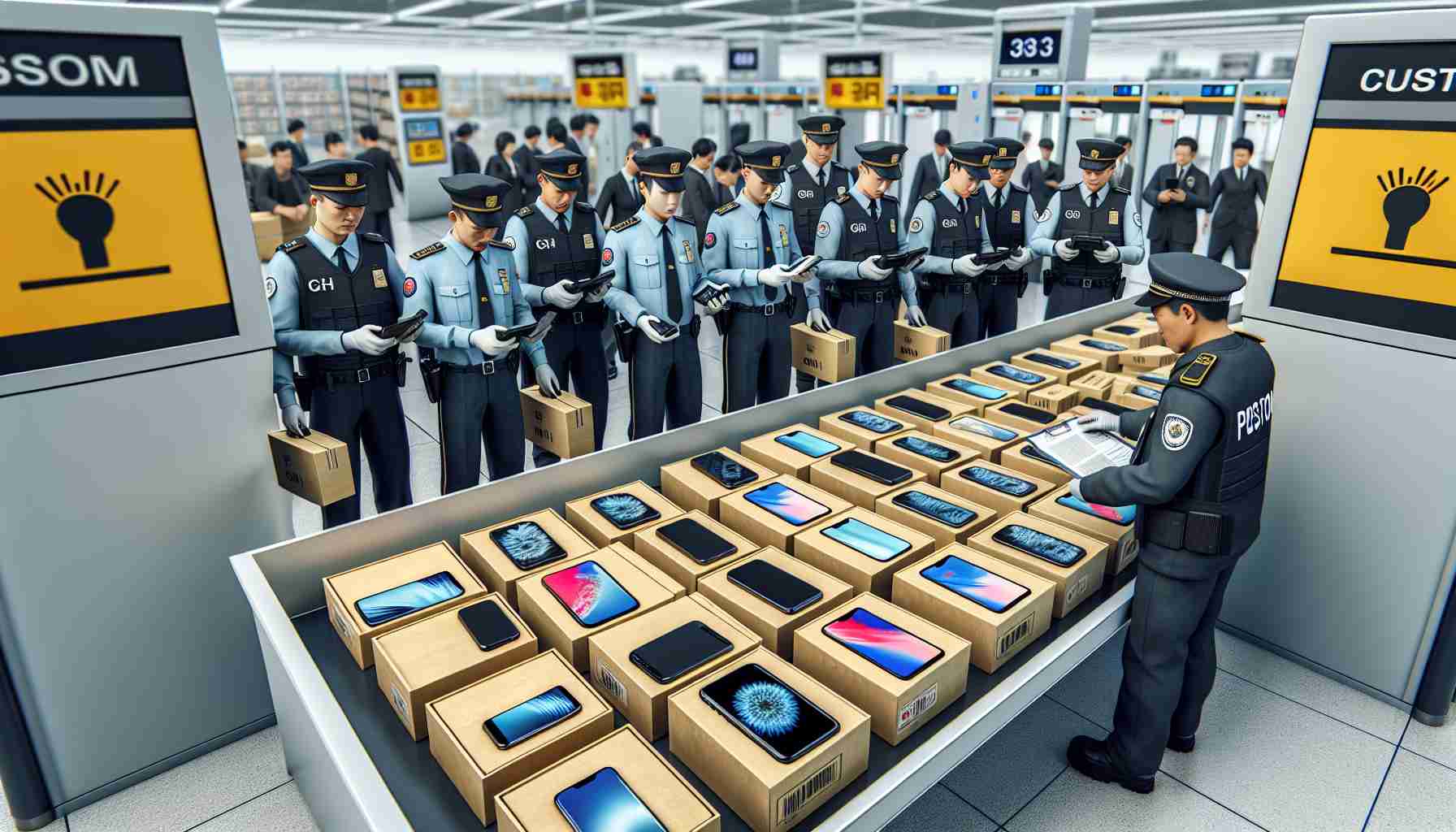Online Vendor Arrested for Selling Imitation Refurbished Smartphones
A South Korean online seller has been caught distributing counterfeit smartphones, presenting them as refurbished models from well-known international brands. The Masan Customs Office, operated under the Korean Customs Service, apprehended a man in his thirties, identified only by his surname “A,” for dispatching these imitation devices within Korea. The suspect has been referred to Changwon District Prosecutors’ Office’s Masan branch without detention last month.
Deceptive Sales of Over 1,400 Fake Phones
Investigations revealed that between June 2022 and October of the same year, the accused sold more than 1,400 Chinese-made fake smartphones on 12 major domestic online marketplaces, claiming they were authentic refurbished products. The sales generated approximately 300 million won in illicit profits for Mr. A. He managed to sell the counterfeit devices for roughly 60% less than the original models, ranging from 220,000 to 700,000 won, while genuine products would typically cost between 550,000 to 1.58 million won.
Counterfeit Goods with Authentic Appearance
The fake products not only bore identical logos and product manuals to the genuine items but also had an operating system similar to the original smartphones installed, adding to the deception.
Tax Evasion Through Underreported Customs
Additionally, Mr. A sold high-end Bluetooth speakers and similar gadgets to about 5,000 customers, including the expected customs duties in the price. However, when declaring the imports, he reported falsely reduced values to evade nearly 200 million won in taxes. Following suspicious replies on the online marketplaces’ inquiry boards concerning after-sales services, the Masan Customs Office initiated their investigation in May of the previous year.
Full Reclamation of Evaded Taxes Planned
Masan Customs has announced its intention to fully recoup the estimated 500 million won, including penalties, which Mr. A evaded. An official from the customs office has advised consumers to avoid purchasing items that lack official after-service or are suspiciously cheaper than genuine products, as they could potentially be counterfeits. The customs office has also encouraged the public to report any illicit activities, such as counterfeit sales or underreporting, to the Korea Customs Service’s smuggling reporting center.
Important Questions and Answers:
1. Why are counterfeit smartphones a significant problem?
Counterfeit smartphones are a problem because they can infringe on intellectual property rights, provide substandard user experiences, potentially contain harmful materials, and disrupt the market dynamics by unfairly undercutting genuine producers’ prices.
2. How do counterfeiters make the phones appear legitimate?
Counterfeiters often replicate the physical appearance, logos, and product manuals of genuine items. They also may install an operating system that mimicks the look and feel of the original device’s software to increase the illusion of authenticity.
3. What are the repercussions for selling counterfeit goods?
Repercussions for selling counterfeit goods can include criminal prosecution, hefty fines, prison sentences, and damage to one’s reputation. It can also result in the full reclamation of evaded taxes and penalties by authorities.
4. How can consumers protect themselves from buying counterfeit products?
Consumers can protect themselves by purchasing from reputable retailers, verifying authenticity certifications, checking for official after-service support, and being wary of deals that seem too good to be true.
Key Challenges or Controversies:
– Enforcement: Constantly evolving tactics from counterfeiters make it challenging for authorities to track and seize counterfeit goods. Technology keeps advancing, and counterfeiters quickly adopt new methods to deceive consumers and enforcement agencies.
– Detecting counterfeits: Counterfeit goods are becoming increasingly sophisticated, making it difficult for consumers and sometimes even experts to distinguish them from genuine products.
– International collaboration: Counterfeiting often involves cross-border operations, which means that international cooperation is vital to combat the issue effectively.
Advantages and Disadvantages:
Advantages of crackdown on counterfeits:
– Protects consumers from potentially unsafe and substandard products.
– Upholds intellectual property rights and fair competition.
– Ensures tax revenues are properly collected, contributing to the national economy.
Disadvantages of crackdown on counterfeits:
– Requires substantial resources and international cooperation, which can be challenging and costly.
– Risk of pushing the counterfeit market further underground, making it harder to track and combat.
– Innocent consumers can be penalized for unknowingly purchasing fake products.
For more information on customs services and combating counterfeit goods, you can refer to the Korea Customs Service’s website: Korea Customs Service.
